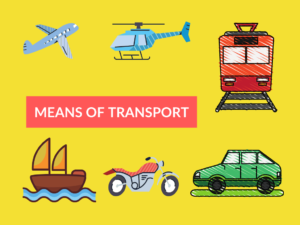Differences between “on” and “upon”
What is/are “on”
“On” is a preposition that is used to indicate various conditions, locations, and timeframes. It is commonly used to specify surface contact, position, or placement.
Examples of “on”
- I placed the book on the table.
- The cat is sitting on the mat.
- I will meet you on Monday.
Uses of “on”
“On” is used in various contexts such as:
- Denoting a physical surface or location.
- Referring to days of the week or specific dates.
- Expressing contact or attachment.
- Indicating someone’s state of being or position in relation to a surface or object.
- Showing the means or method of transportation.
What is/are “upon”
“Upon” is a more formal and less commonly used synonym of “on.” It is often used in literary or formal contexts to indicate a heightened or more dramatic sense of placement or occurrence.
Examples of “upon”
- She placed a kiss upon his cheek.
- The moment they met, they fell in love upon the moonlit beach.
- Upon my arrival, I was greeted with applause.
Uses of “upon”
“Upon” is used in similar contexts as “on,” but it adds a sense of formality or importance to the situation. It is often used in:
- Literary works.
- Formal written or spoken language.
- Expressions conveying a specific moment or event.
- Abstract or conceptual ideas.
Differences
| Difference Area | “On” | “Upon” |
|---|---|---|
| Usage Frequency | High frequency | Less frequent and more formal |
| Informality | Commonly used in informal contexts | Used in formal or literary contexts |
| Surface Contact | Indicates direct contact or position on a surface | Implies a more dramatic or poetic sense of placement |
| Date/Time Indication | Commonly used to specify days of the week and specific dates | Less commonly used for time indications |
| Attaching/Connecting | Used to express attachment, connection, or involvement | Used to convey a sense of being influenced or affected by something |
| Means of Transportation | Can be used to indicate the means or method of transportation | Less commonly used in transportation contexts |
| Dramatic Effect | Does not carry a specific dramatic connotation | Often used to create a more heightened or poetic effect |
| Formality | Generally informal and used in everyday language | Considered more formal and used in formal or literary contexts |
| Awareness of Surface | Focuses on the physical surface or object being referenced | Can imply a less tangible or direct connection to the surface |
| Connection to Literature | Not specifically associated with literary contexts | Commonly associated with literary or formal language |
Conclusion
In conclusion, the differences between “on” and “upon” primarily revolve around usage frequency, level of formality, and the connotation of placement or occurrence. “On” is more frequently used in everyday language, while “upon” has a more formal or literary tone. The choice between the two depends on the desired level of formality and the context in which they are used.
People Also Ask
- Is there any difference between “on” and “upon”?
Yes, there are differences in usage, formality, and connotation. “On” is more commonly used and less formal, while “upon” is more formal and often used in literary or formal contexts. - When should I use “on” instead of “upon”?
“On” is commonly used in everyday contexts, such as specifying surface contact, time indications, or means of transportation. It is generally more appropriate in informal settings. - Are there any situations where “upon” is preferred over “on”?
“Upon” is often preferred in formal or literary contexts, expressions of specific moments or events, and when a more elevated or poetic effect is desired. - Can “on” and “upon” be used interchangeably?
While there may be some overlap in certain contexts, “on” and “upon” have distinct usage patterns and connotations. It is important to consider the desired tone and formality when choosing between them. - Does the choice between “on” and “upon” impact comprehension?
Generally, both “on” and “upon” are readily understood by native English speakers. The choice between them may affect the formality or style of the language but does not significantly impact comprehension.


